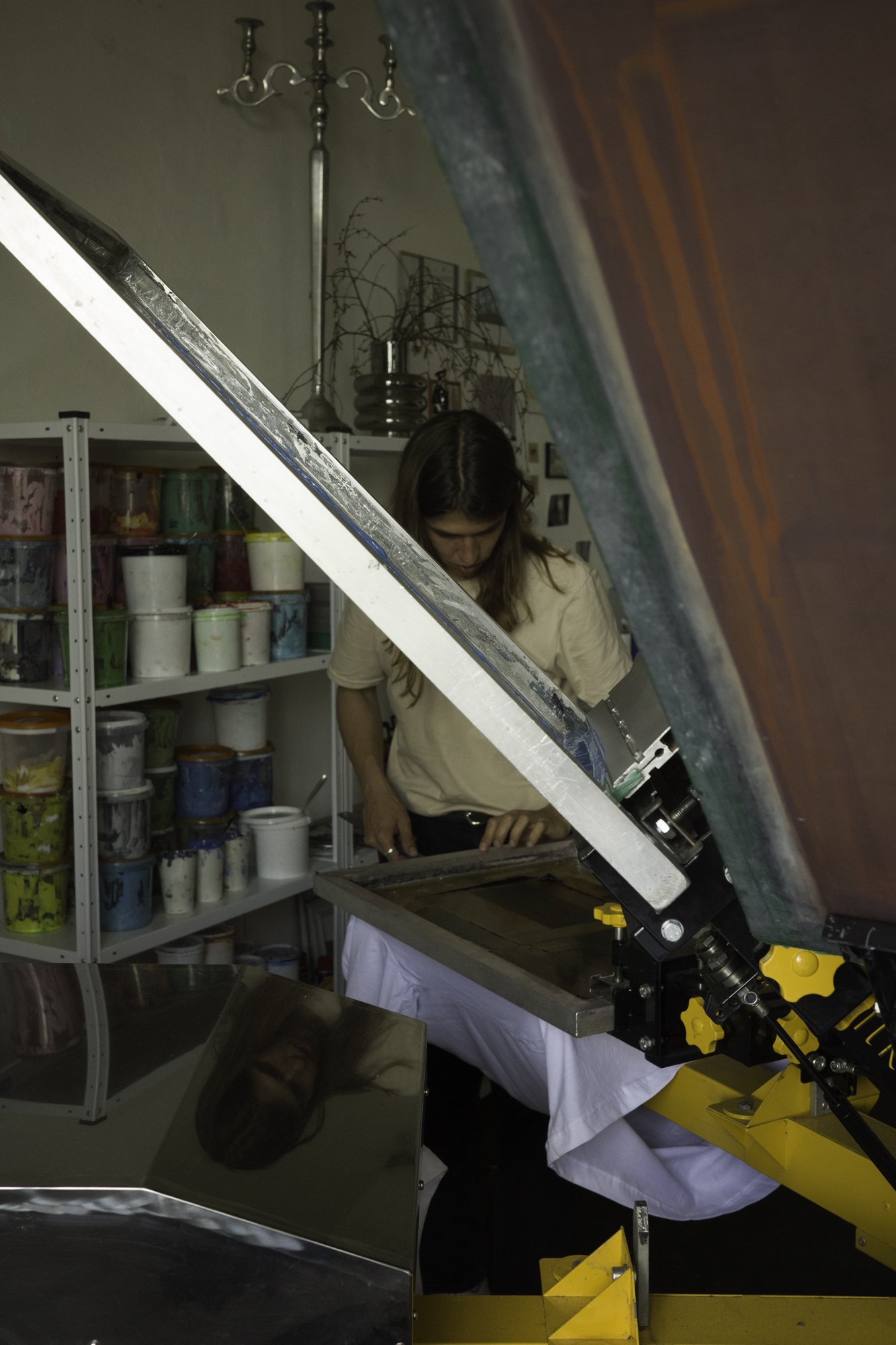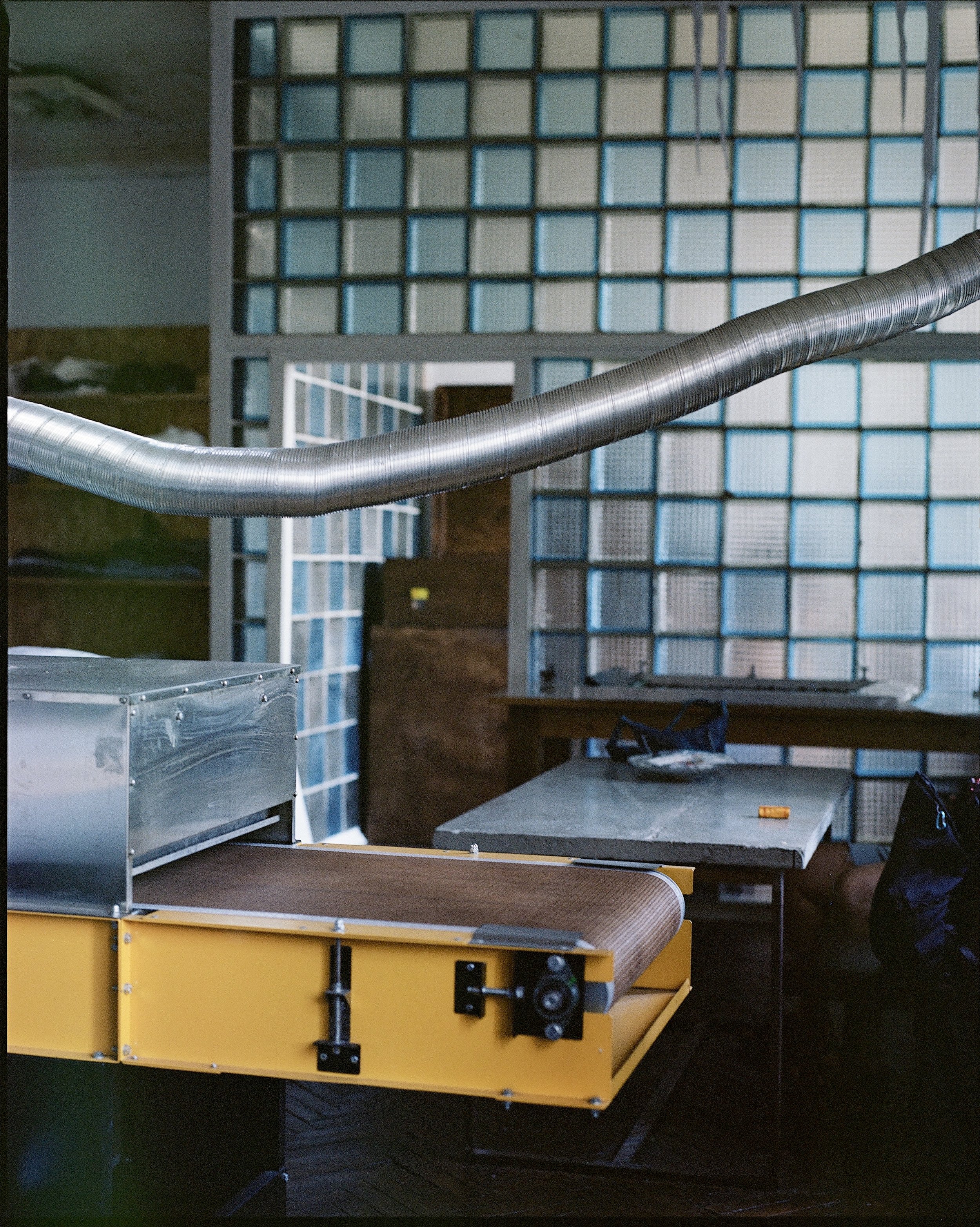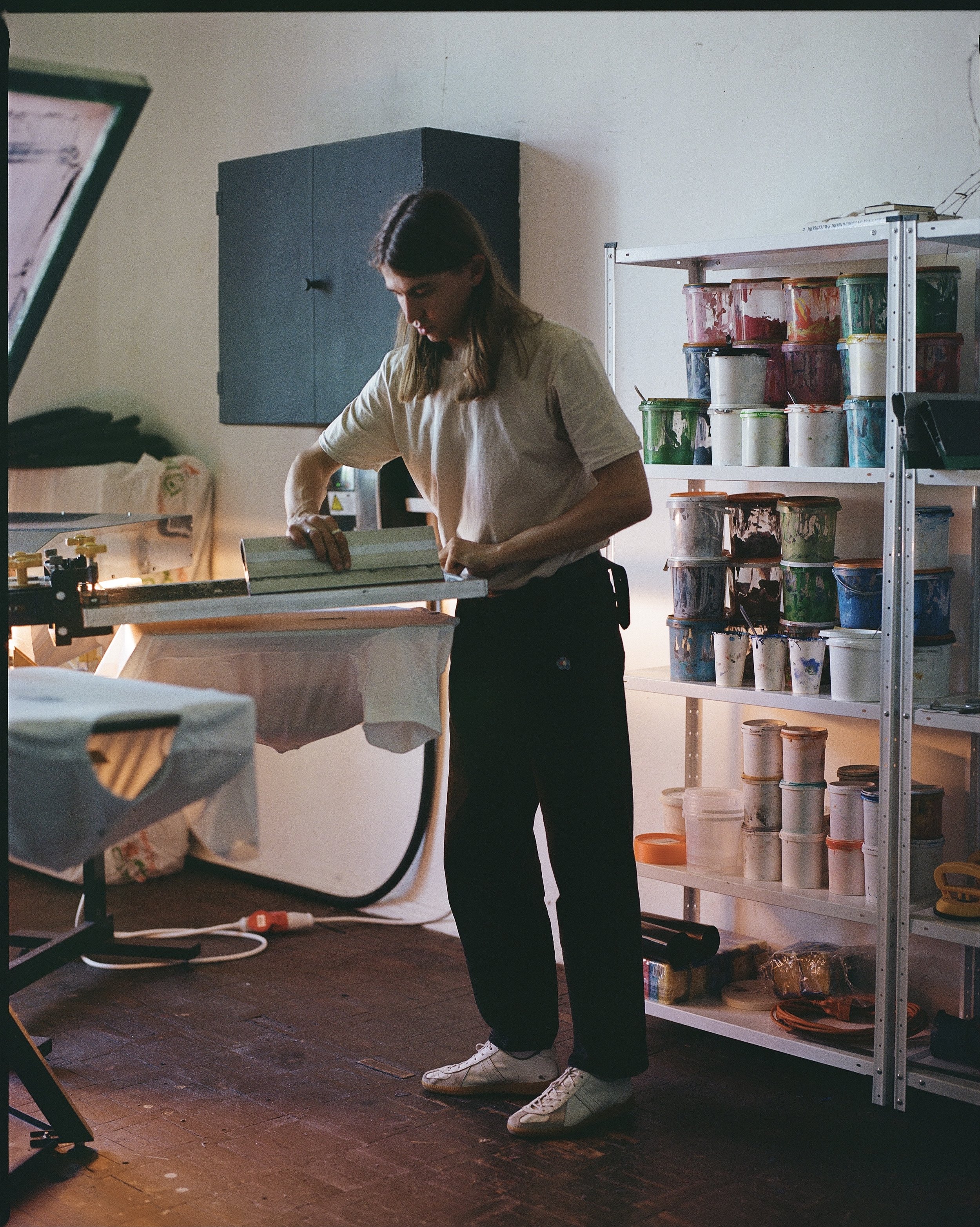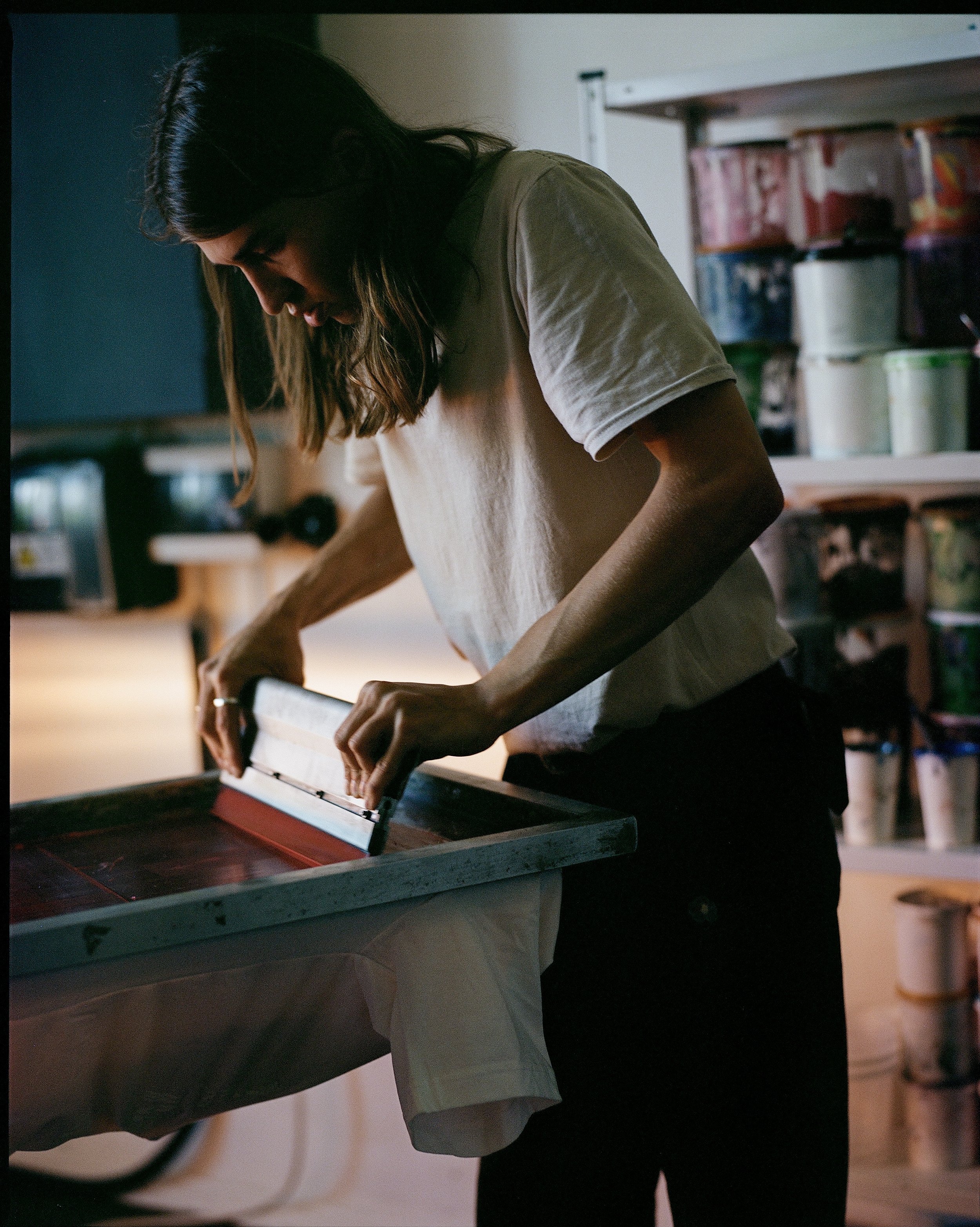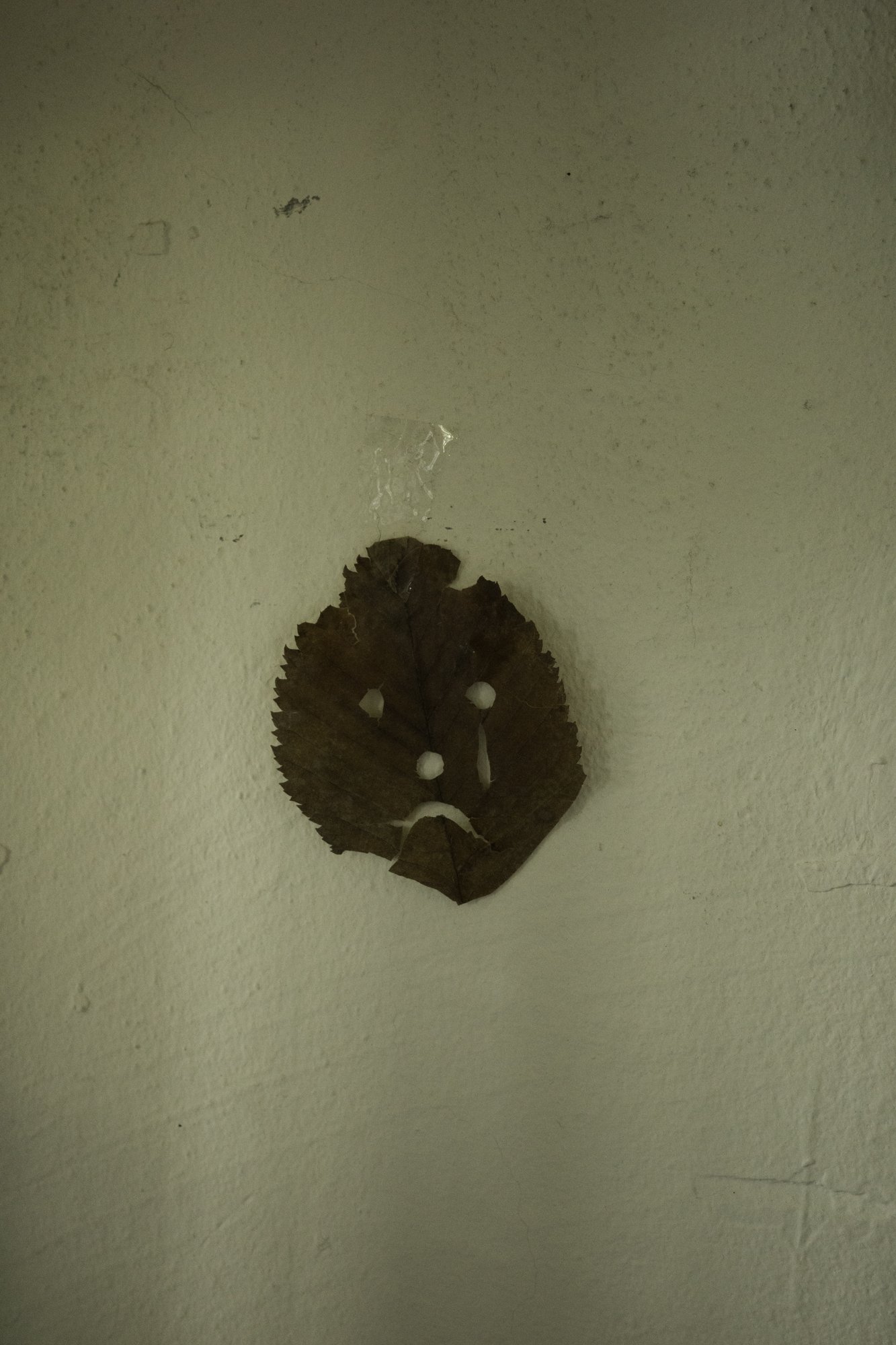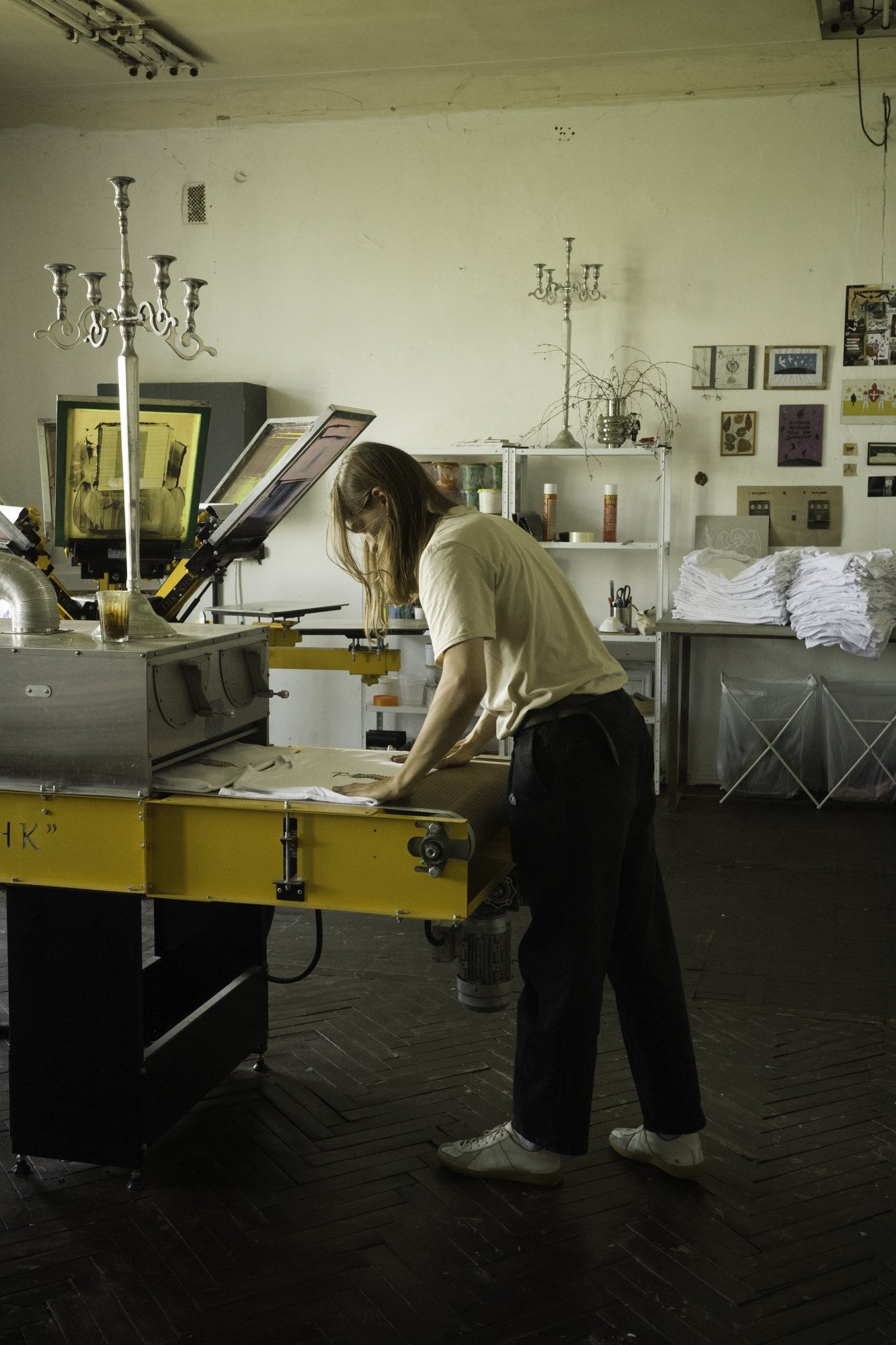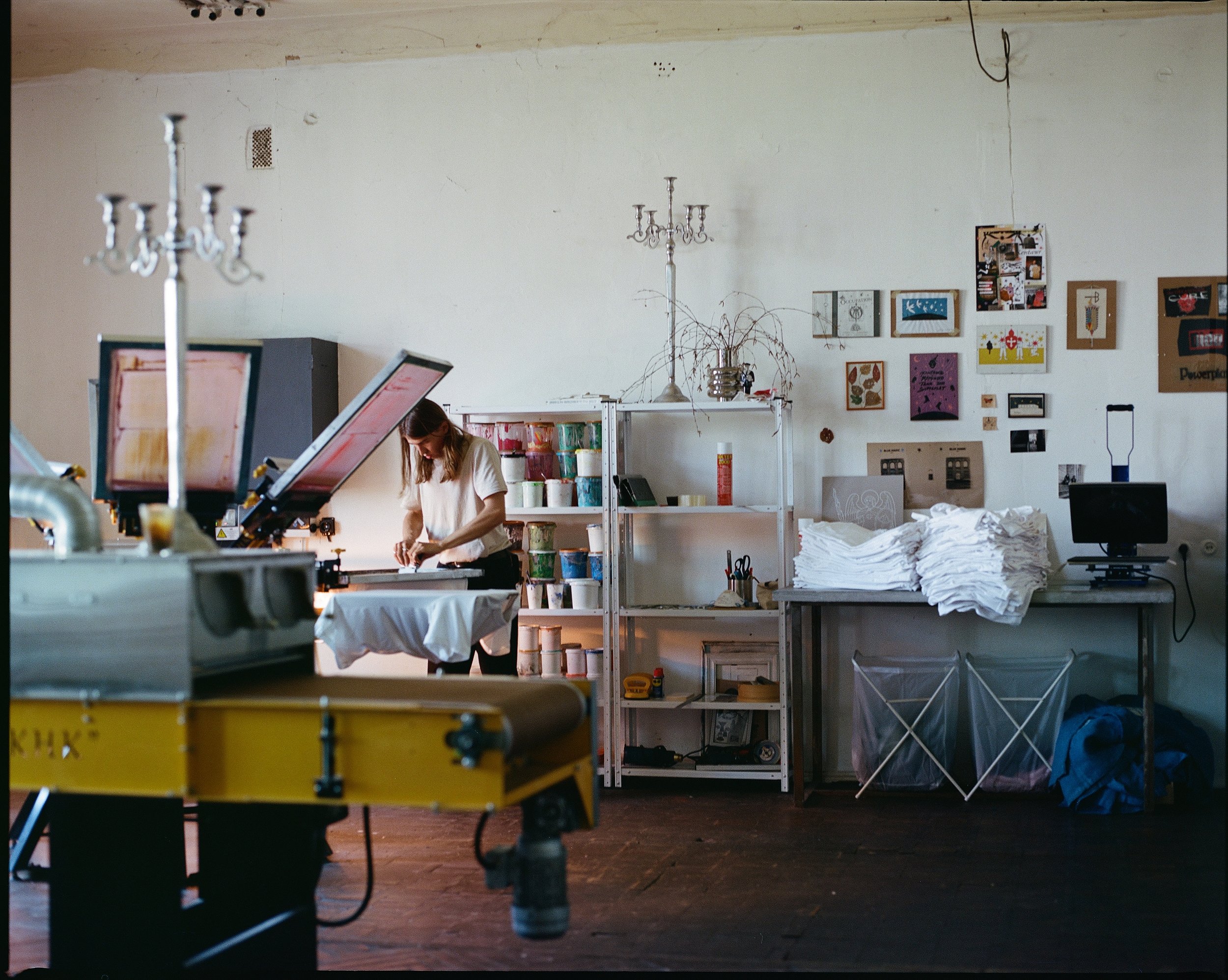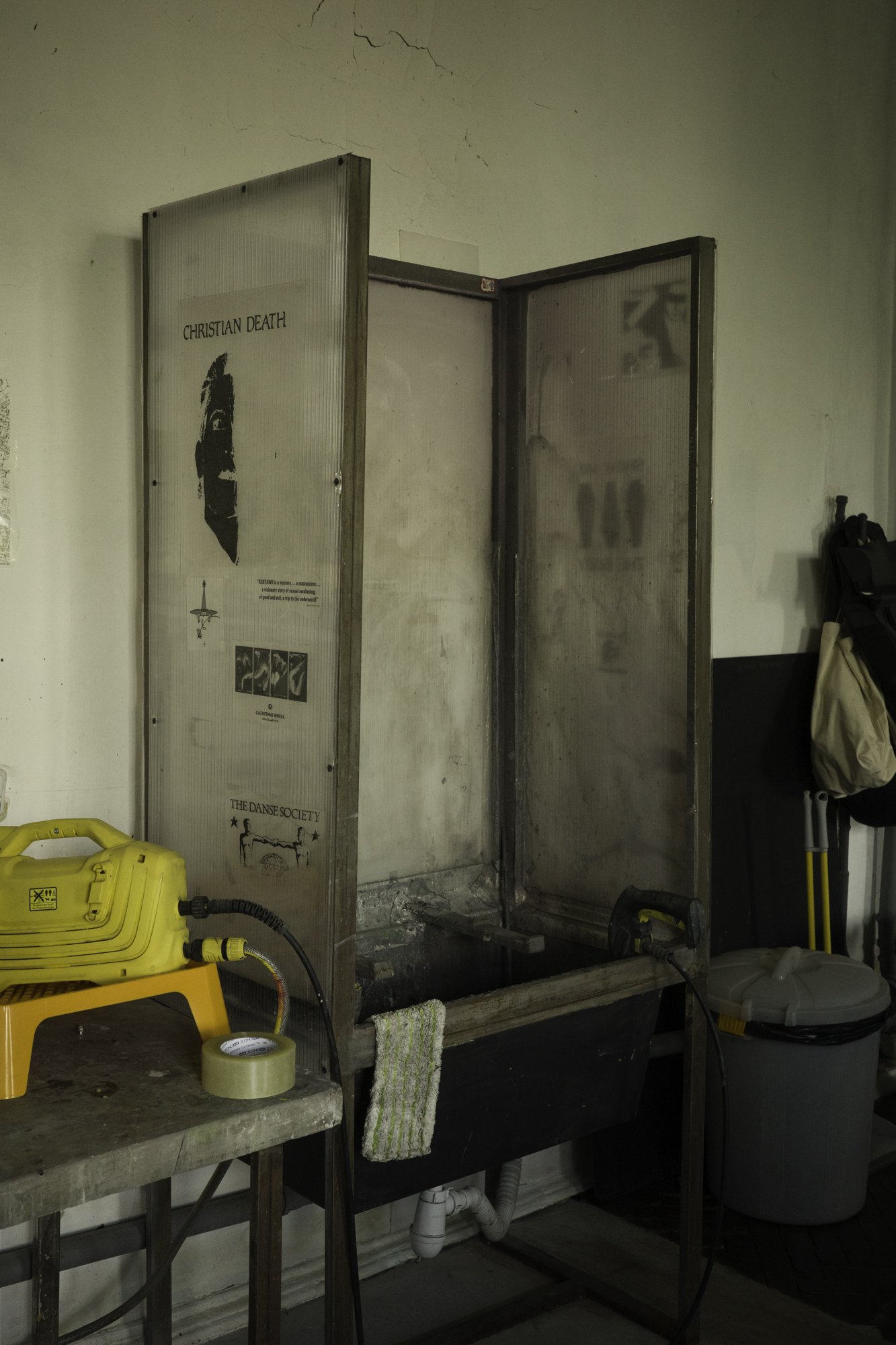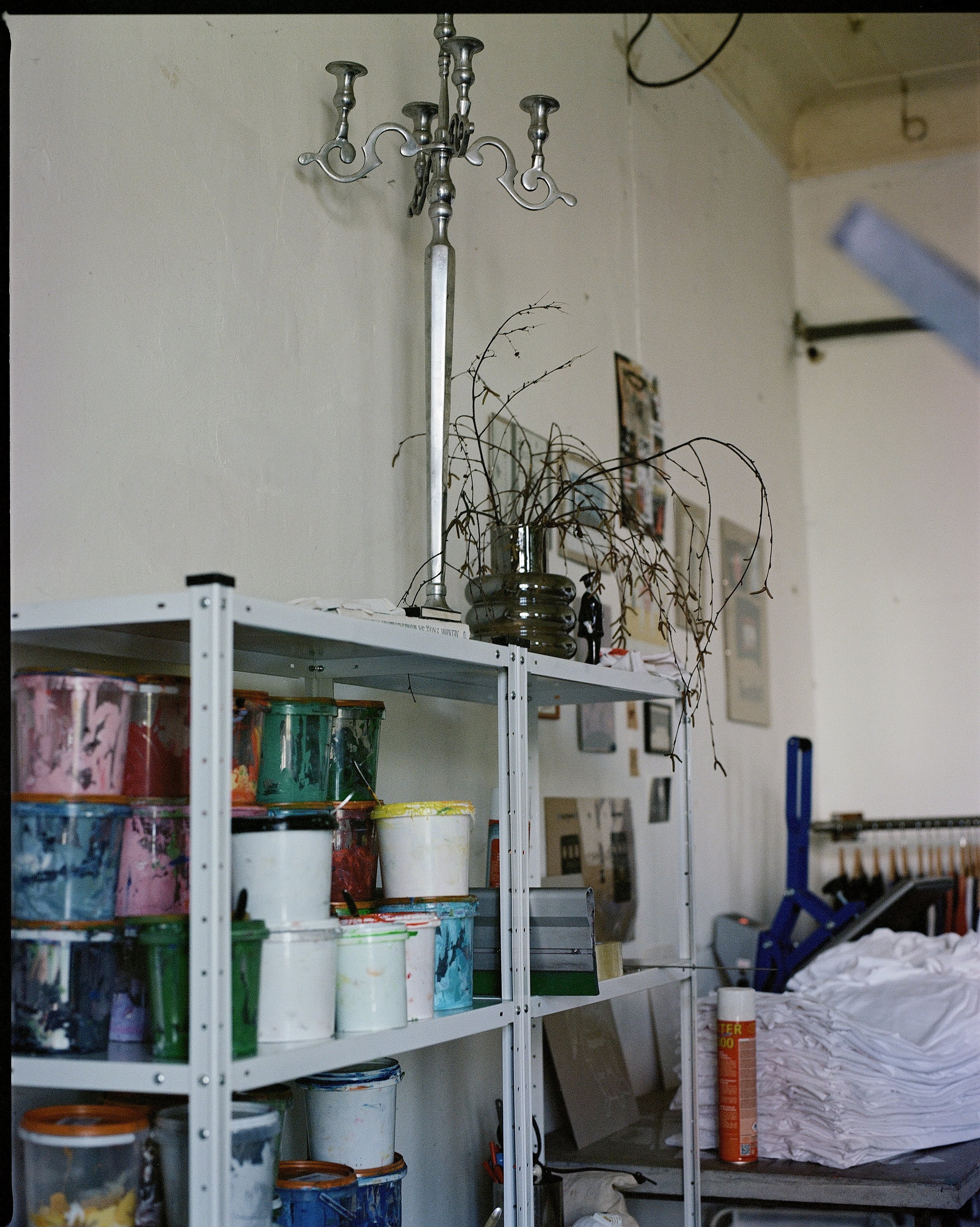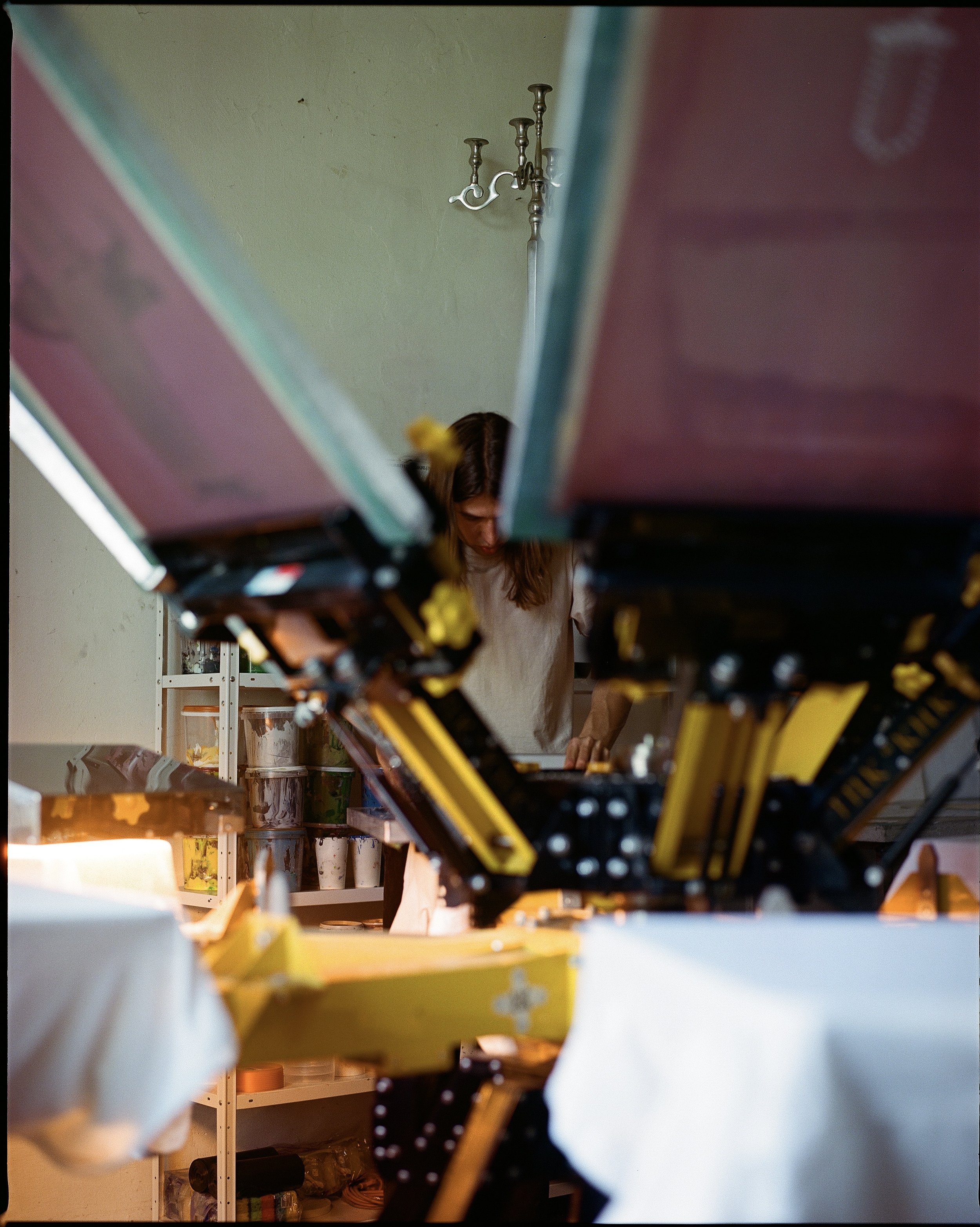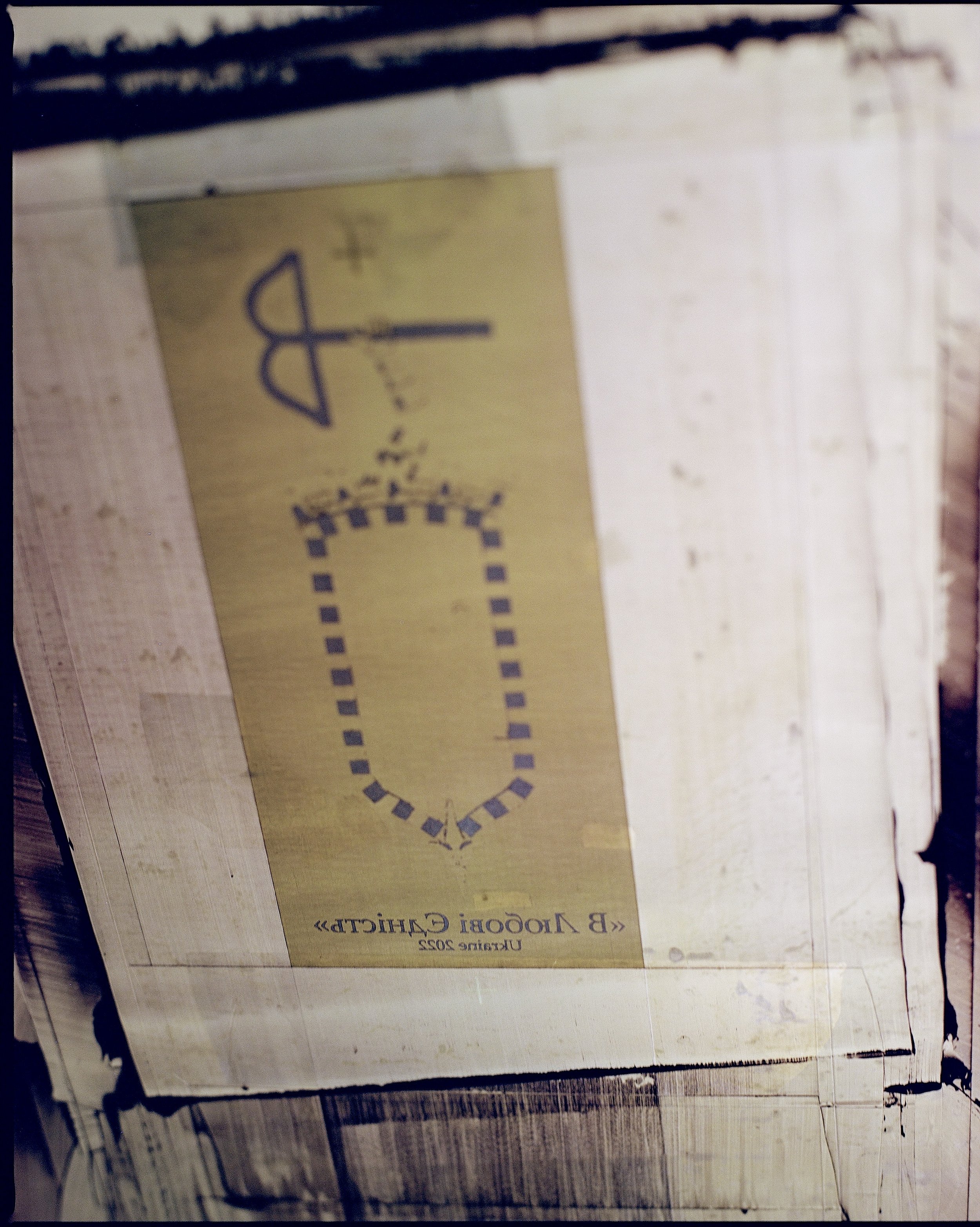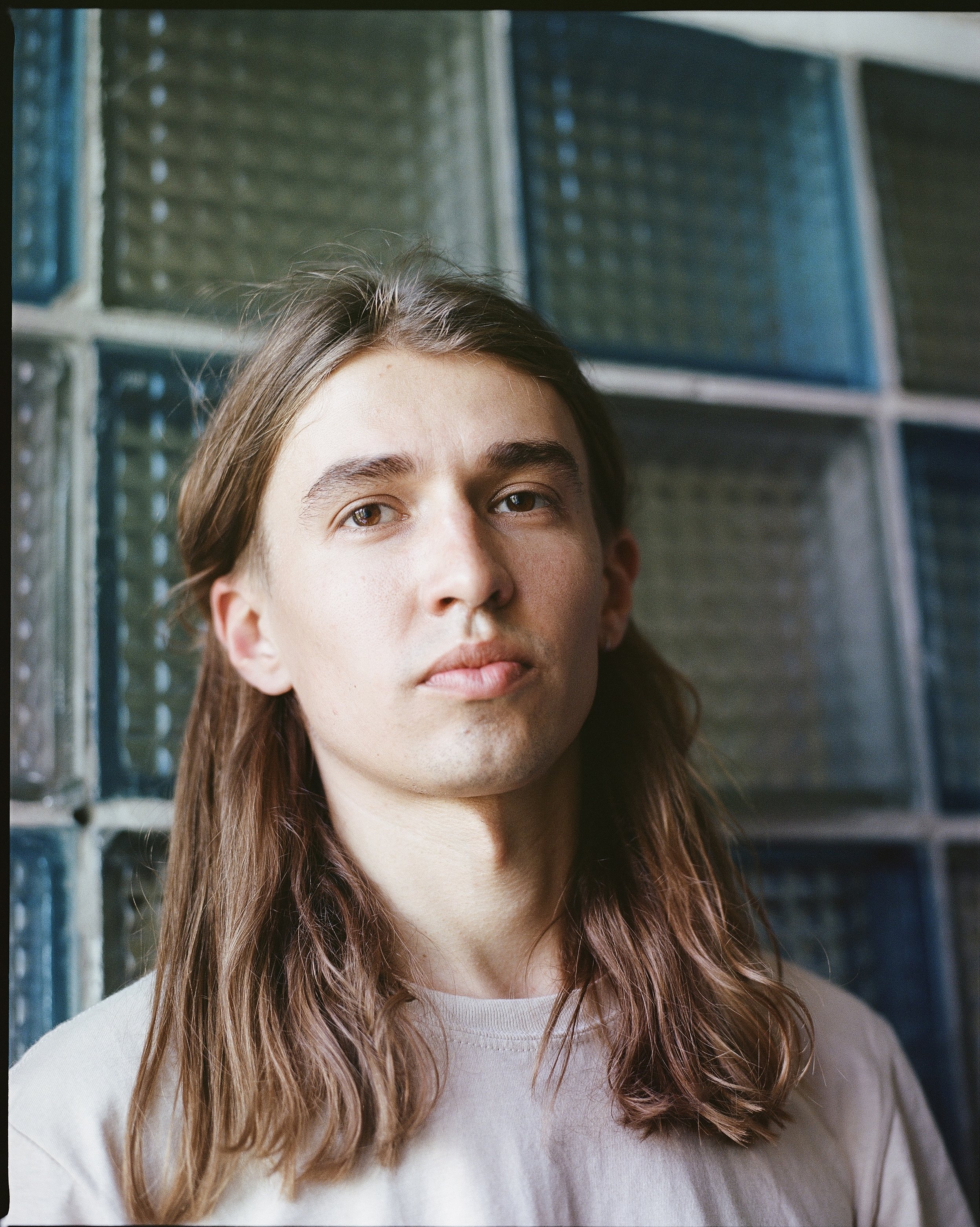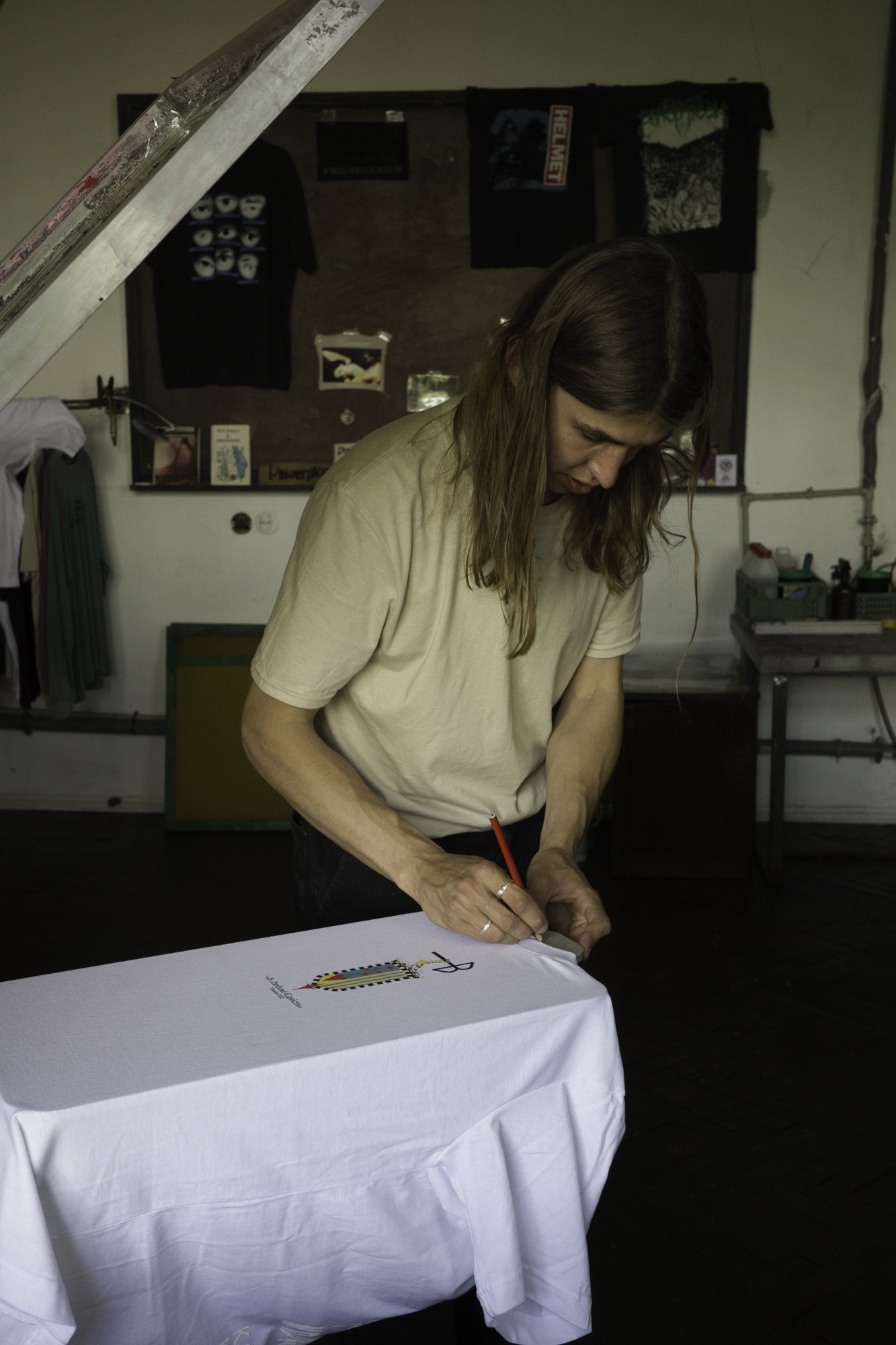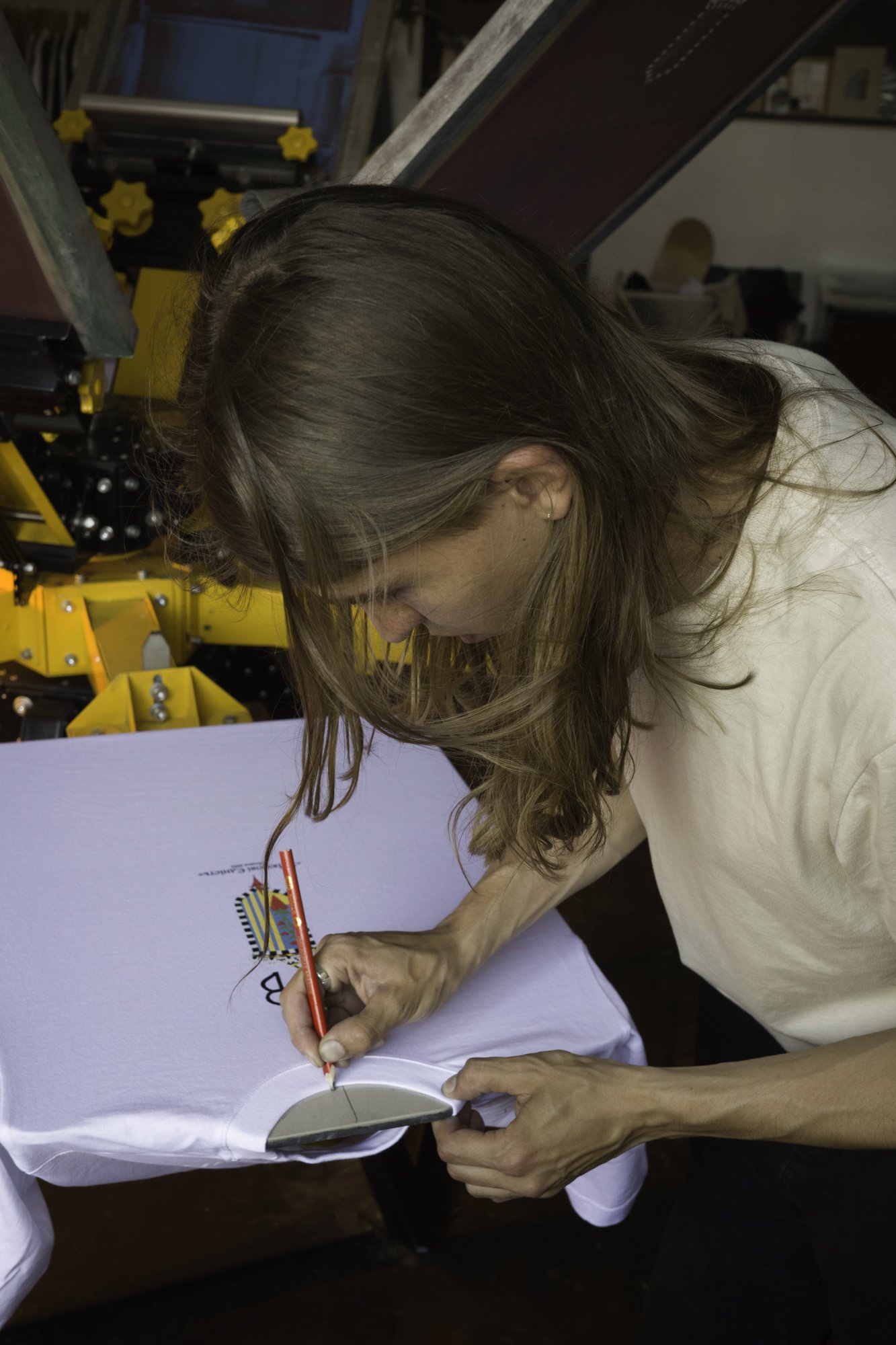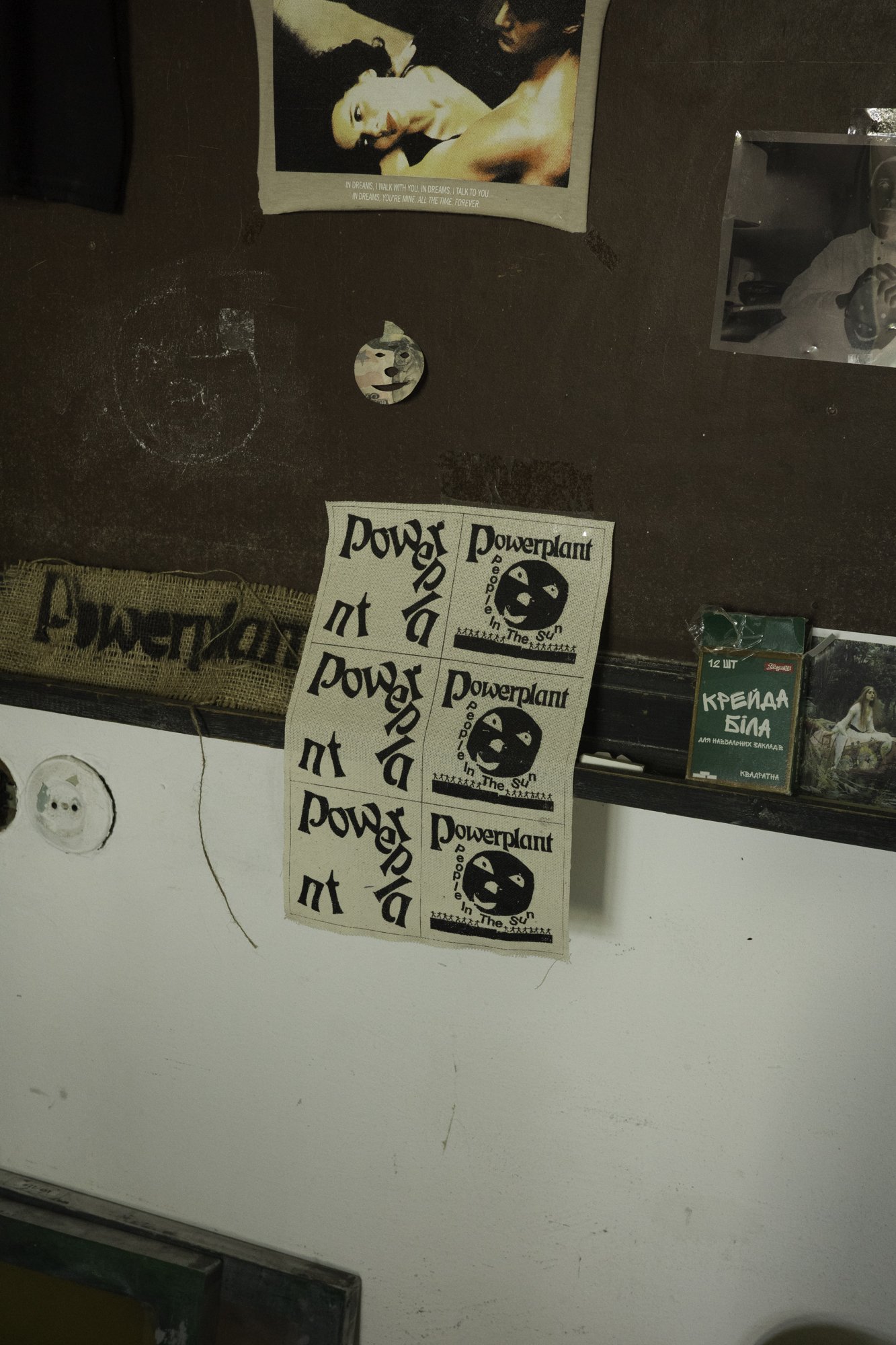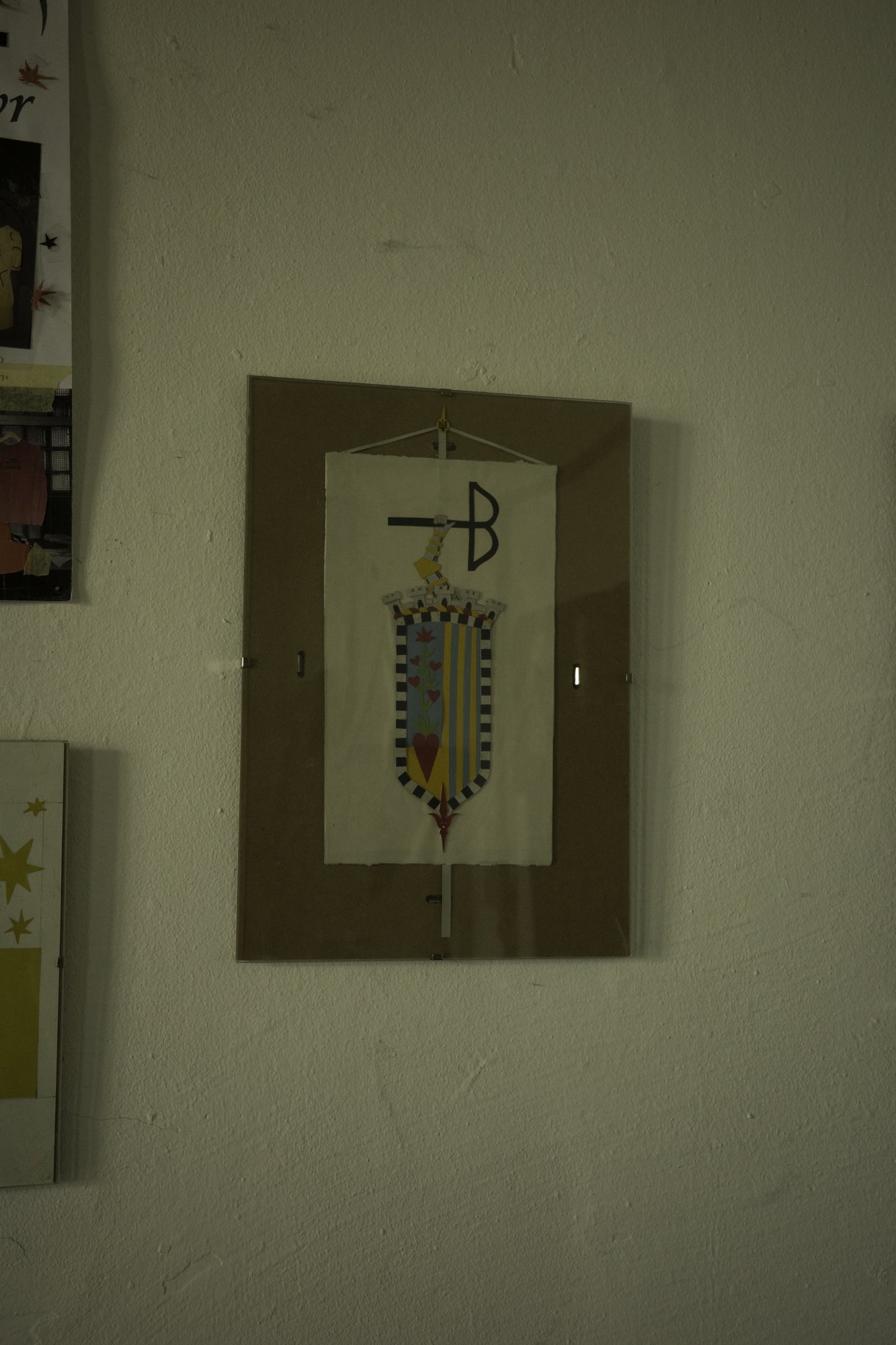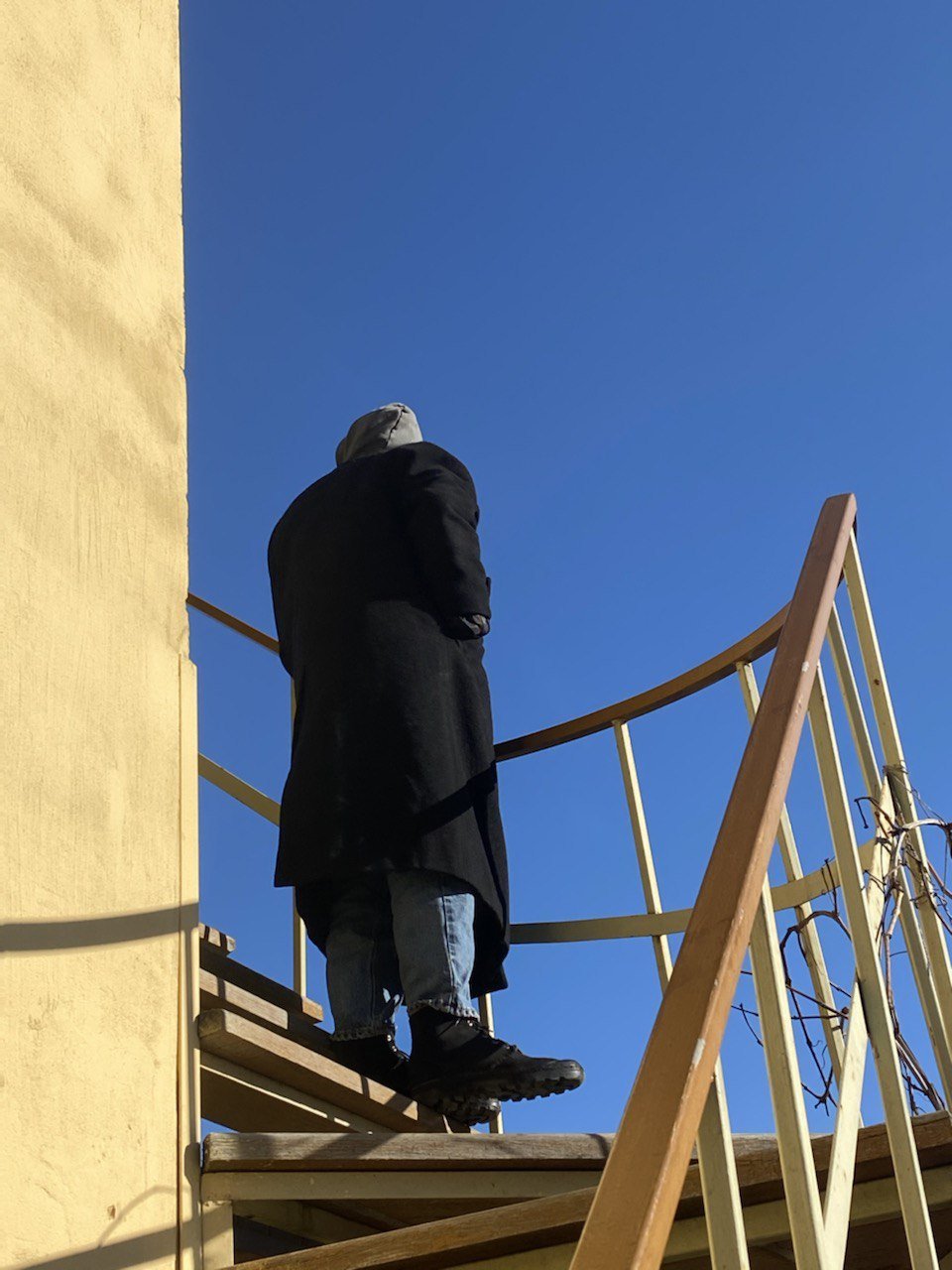The duality of war
“But the duality of war is following - it not only kills, destroys, tortures and rapes. It unites. It unites people in a will to live and survive.”
Anton Vozniuk is a 29-year-old artist from Kyiv. In his silkscreen workshop, he creates small series of individual prints that he sells under his label walls.press. When the war broke out in Kyiv, he left the city to be with his family in Plakhtyanka. At the time, he did not know that he would be living there for a month under Russian occupation. During this time it was impossible for him to be creative or to design. However, since he has returned to Kyiv, the workshop has become his retreat. In cooperation with other artists, he has been working on the "Unity In Love" initiative for the last few months. One hundred percent of the proceeds from the "Unity in Love" T-shirts go to charity initiatives and volunteers. Our photographer Lesha visited him in his workshop and Anton tells us about the time he lived under Russian occupation and how much strength it gave him to stand in the workshop again and work for the future of a creative Ukrainian community.
The elements used for designing the crest resemble different symbols: The tree of life, which stands for the power of life that’s always stronger than death. The tree's roots come from “the love”, which we see as the only source and primary purpose of life. The castle symbolizes the heroic resistance of Ukraine and our people. The arm-holding crossbow recalls the Kyiv city magistrate's Coat of Arms from the 17th century. And below the crest, there’s “В Любові Єдність” motto, which means “Unity in Love.”
The night from the 23rd to the 24th of February
At noon, my girlfriend Olya and I finished the renovation of our workshop. Usually, things like this instantly make your life brighter, but this time it was just this feeling of a total void inside. Later, I fell asleep with the phone in my hands. At 5am, I jumped out of bed because of the sounds of loud explosions. We heard the sirens in Kyiv for the first time. We packed our bags and went outside. The city outskirts were already jammed with cars, and so was the Zhytomyr motorway that leads to my parent’s house in the village Plakhtyanka. We walked 17 km and the sky was filled with smoke and the ongoing sounds of military aviation.
At my parent's house in Plakhtyanka
We were 11 people in total but had only one car. We transformed our basement into a “bomb shelter” and stocked it with food and water reserves. During the nighttime, we covered the windows with black plastic wrap. The first two days were relatively calm. On the third, the shelling started all around in the province’s proximity, Russians were attacking with multiple rocket launchers, mortars, or other heavy artillery. There was always aviation flying over our house. Every night, we took 3-hour safety shifts and saw the red glow from the explosions. The moment the explosions got closer, the whole family was running down to the basement and waited for it to end. With every new day, the explosions were getting closer and closer. On March 4th, my mom and stepfather decided to evacuate the kids to a safer place towards the western part of Ukraine.
First days of occupation: Anton and Olya went for cigarettes. They met people with guns who sent them back home.
Makeshift bomb shelter in the basement of the family’s house. The whole family was hiding there.
Makeshift bomb shelter in the basement.
At that point, there were no official “white corridors,” and we knew that Russian soldiers were firing at civilian vehicles. But we had no other option. In the car were three children, my mom, my aunt, Olya, and my stepfather. There was not enough space for me and my grandparents. They reached a Russian checkpoint. The Russians checked the car and let them pass, but started shooting at the car with machine guns. Luckily, everyone survived. We had to stay in the occupied village for another month.
When I got separated from most of my family, I really experienced fear, thinking about the possibility their car could get shot. It was probably the worst moment of my life so far. There was no telephone connection and we had to walk through the fields to catch the signal. In the evening we managed to call and I heard that everyone was alright. It is pretty difficult to describe my mental state after that day. It felt like all of my emotions had disappeared.
On the second floor of an outbuilding, Anton built an observation deck. From there, he could see the road leading to our house.
Under occupation
My grandfather and I built several makeshift bomb shelters, buried cans of gasoline and provisions in different places on the territory and made a pit (trench) in a field a few kilometres from our house. All this helped to keep calm. The presence of the military became familiar at some point.
I spent most of my time reading books. Reading was the only activity that could distract me for a while from what was happening, but there was only a limited amount of books at the dacha. Books were probably what I missed most. It was impossible to focus on drawing or creating. It seemed totally useless at that moment.
Several times, a column of Russian military passed by our house. One day they stopped and searched all the houses in our street, taking the smartphones from the locals. In the households where people did not open them, the soldiers knocked outdoors and windows. After I got evacuated, I discovered that two people were kidnapped and later found somewhere in the North of Russia.
The evacuation
For the entire time, my girlfriend Olya tried to find a way to get us out of the occupation. But Plakhtyanka was constantly in the “red zone,” and the volunteers refused to go there. Only when the Ukrainian military started a counterattack and information about more and more liberated villages reached us, I realized that shortly we would be able to leave. On April 1st, several cars managed to bring food and medicine to the village, and they picked me up on the way back.
We drove in silence. We passed blown up military equipment, buildings, bridges and trenches destroyed by shells, bridges. And we passed burnt cars with civilians inside who could not get out soon enough. It took me a week to cope with everything that happened.
Back to work
After returning to Kyiv, we went back to work almost immediately. I felt personally responsible and wanted to be helpful in times like these, so getting back to work was the best I could do. It was vitalising for me to help.
Now, after spending a month in isolation, socializing and being in crowded places is still quite hard. Because of this, the workshop is the best place to be right now. I spend all my time at work.
Unity in Love
„This is the conceptual idea of our campaign: real solidarity is about showing love, compassion, care, and empathy to each other instead of blindly following political slogans and ideological agendas.“
There is a strong sense of community emerging in Kyiv at the moment. Everyone I know is trying to be active and wants to support each other. I’ve never experienced anything like this before. In Ukraine, there are numerous grassroots initiatives and they interact with each other in various forms. Our friends are travelling from region to region, helping people with food, medicines, and rebuilding destroyed houses. It is very inspiring and gives me a lot of strength.
The “Unity In Love” project has linked some of these initiatives together. The crucial idea is to unite our efforts to get funds. We want to support the local sewing workshop and the volunteer organizations. It was essential for me to involve foreign initiatives in the project. It helps spread the message to a particular target audience and points out that the war concerns everyone. It’s still going on, and Ukraine faces the most difficult challenges every day.
I hope that our and similar projects will help to draw international attention to grassroots initiatives in Ukraine. It should become more evident to the international community that many different people with various interests and dreams live and grow here. They used to have a decent life full of creative opportunities. But the Russian government, Russian military and Russian imperialistic ambitions brutally took everything away.

